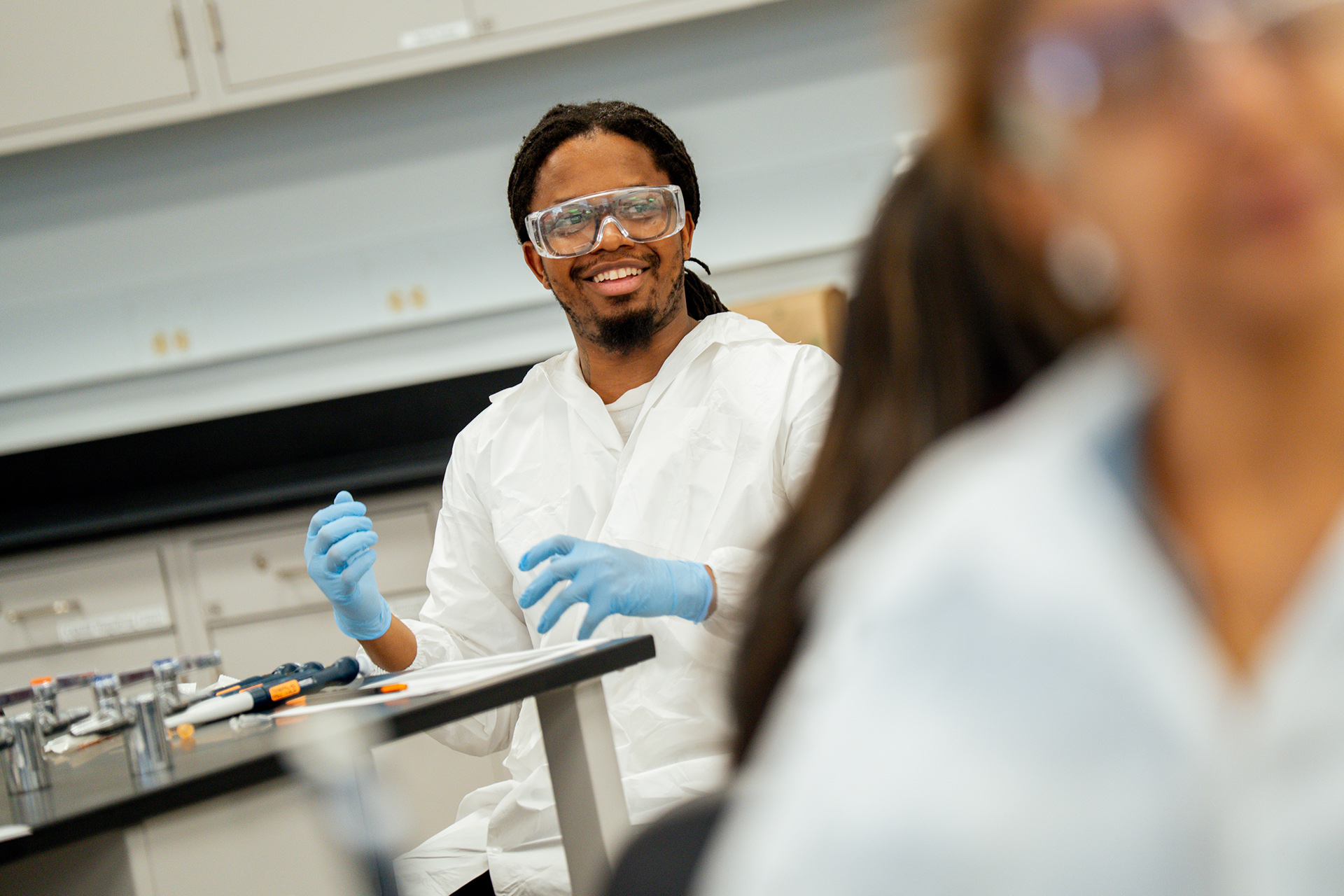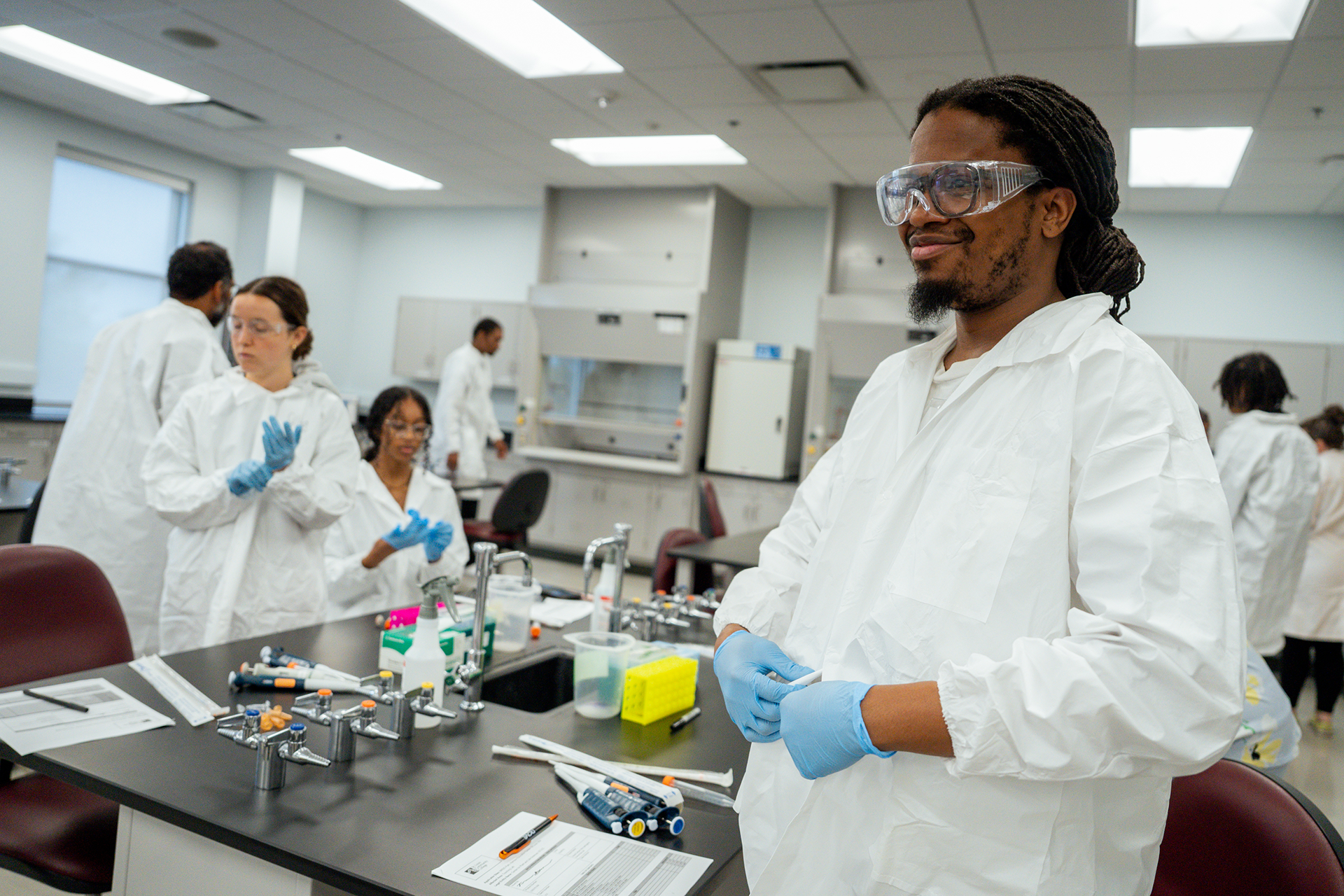Talent Lives Here: How a St. Louis Boot Camp Is Redefining Who Belongs in Biotech

Karl Hill didn’t plan to build a career in science. But after a few weeks in BioSTL’s Biotech Boot Camp, things started to click.
“I never saw myself as the guy in the lab coat,” he says. “But this class makes me feel like I could do that.”
That sense of belonging is exactly what the BioSTL Workforce Collaborative is designed to create. Through its hands-on training programs — like the Biotech Boot Camp — it’s connecting St. Louisans from historically excluded communities to high-wage careers in bioscience. And it’s doing so by investing in the people and neighborhoods often left out of the region’s innovation economy.
A New Path Into the Industry
Hill, a science enthusiast who grew up on Animal Planet and National Geographic, hadn’t considered biotech as a career — until now.
“This was just an option at first,” he says. “But it’s grown on me. I’ve always loved science, and now I’m starting to see how I could fit in — and where I could make a difference.”
The Biotech Boot Camp, led by BioSTL and its partners, offers more than technical skills. It gives participants real exposure to lab environments, mentoring from industry professionals, and support navigating the challenges that can stand between jobseekers and opportunity. The experience has shifted how Hill sees his future — and what kind of impact he wants to have.
I think about how science doesn’t always speak to my culture. But I could change that. I could study how to grow healthier produce in places without access. This could be a way to help my community. — Karl Hill
What the Program Offers
Developed in partnership with St. Louis Community College and the Bioscience Core Skills Institute, a national bioscience credentialing organization, the Boot Camp is part of a broader effort by the BioSTL Workforce Collaborative to expand career access across the bioscience ecosystem. With support from JSMF and others, the program focuses on preparing “opportunity youth” — young adults ages 16 to 24 — for entry-level biotech roles that offer not only good wages, but real potential for advancement.
Participants receive:
- Technical training and lab simulations to build in-demand skills
- Support services like transportation guidance, coaching, and wraparound resources
- Industry exposure through site visits and connections to local employers
- Mentorship and confidence-building that reflect participants’ lived experiences
According to BioSTL, the goal isn’t just to help people find jobs. It’s to build an inclusive talent pipeline that supports economic mobility and meets the hiring needs of St. Louis’s growing bioscience sector.
Why It Matters
Programs like the Biotech Boot Camp fill a critical gap. Across the region, bioscience employers are hiring — but too often, the pathways into those careers are unclear or inaccessible to people without traditional credentials or professional networks.
Karl Hill’s story illustrates what happens when those barriers start to come down. “I know the bus can be unreliable, and it’s early mornings,” he says, “but I’m here. And I feel supported. They treat me like I matter.”
That culture of encouragement, he says, makes a difference. “They give you a roadmap. Most people don’t take the time to do that.”
A Workforce Rooted in Equity
The BioSTL Workforce Collaborative is more than a training initiative — it’s a model for what inclusive workforce development can look like when it centers community voice, real-world opportunity, and long-term investment.
For Hill, it’s already expanding his sense of what’s possible — not just for himself, but for others like him.
“This could be pivotal,” he says. “If I keep going, maybe I could inspire someone else — someone who never saw themselves in this space before.”
In a city working to unlock its full potential, stories like Hill’s are a reminder: talent lives here. What’s needed is the infrastructure to nurture it — and the belief that everyone deserves a shot at prosperity.

